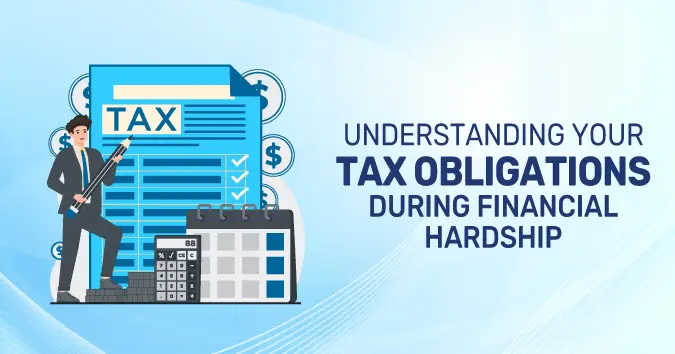Dealing with tax obligations during financial hardship is something more and more Australians are facing. In fact, recent research shows that 47% of people with debt have struggled to make repayments in the past 12 months — that’s about 5.8 million people. What’s surprising is that instead of asking for help, 42% said they would rather sell their belongings, and 40% would rather get a second job before applying for financial hardship assistance. But the truth is, help does exist — and it’s okay to use it. Whether it’s setting up a payment plan, understanding how to manage your tax during tough times, or looking into the early release of super due to financial hardship, knowing your options can make a big difference. This simple guide will walk you through what you need to know, in plain language, so you can take control, one step at a time.
Why It’s Important to Manage Taxes, Even During Tough Times
When money is tight, taxes might feel like the last thing you want to think about. You’re probably more focused on paying rent, buying food, or paying other bills. But even when you’re having financial hardship, it’s still important to take care of your taxes.
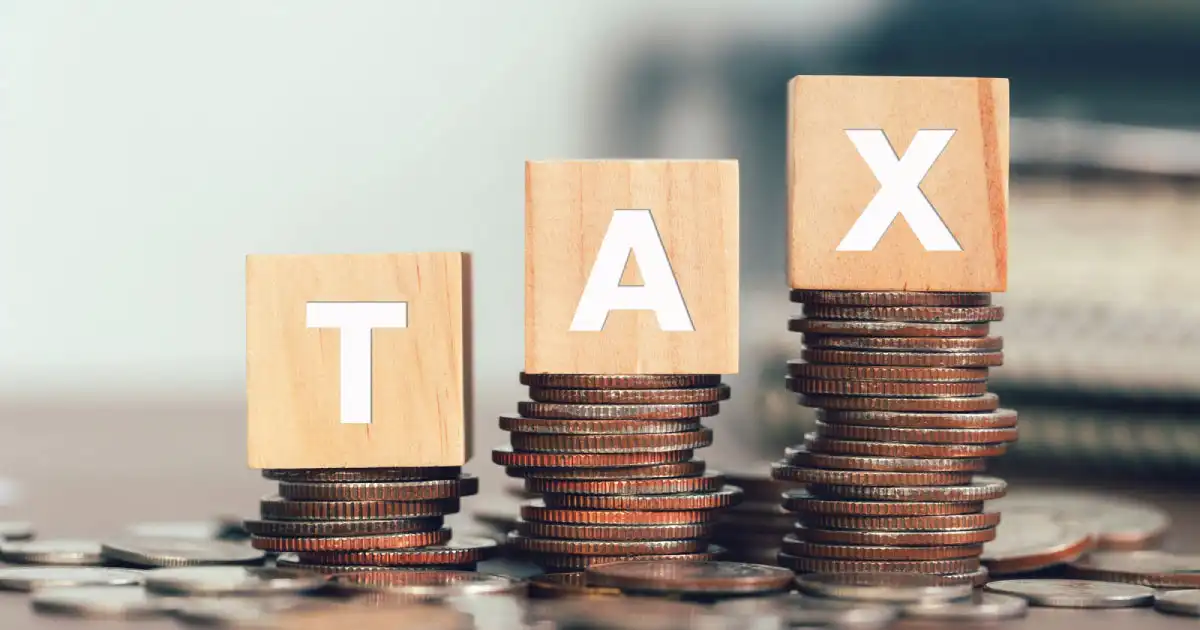
Ignoring your taxes won’t make them disappear — it can actually make things worse. You might have to pay late fees, extra interest, or even face legal problems. If you don’t lodge your tax return or pay what you owe, the debt can grow fast, making it harder to fix later when your financial situation gets better.
The good news? Help is available. Many tax offices understand that people go through hard times. That’s why there are financial hardship assistance programs that can give you more time to pay, help reduce penalties, or even pause repayments temporarily. By staying on top of your taxes — even just by filing your return on time — you show that you’re doing your best. And that can open the door to support that takes some of the pressure off.
You May Be Eligible for Extra Time to Lodge or Pay
If you live in an area that’s been hit by a big disaster — like a flood, bushfire, or strong storm — you might get extra time to do your tax return or make payments. This can help people, businesses, and even those who keep their tax records in the affected area. Emergency workers helping with the disaster may also get this extra time.
During a disaster, the government knows that doing your tax might not be the most important thing. That’s why they give you more time to lodge your tax forms or make payments. If you follow the new deadline, you won’t have to pay extra fees or interest for being late.
If you’ve been affected, check with your local tax authority or visit their website to see if your area qualifies and what the new deadlines are. Taking this step can give you peace of mind and breathing room when you need it most.
Repayment Flexibility and Payment Arrangements
If you’re having money problems, you might need to sell things like shares, cryptocurrency, or an investment property. If you sell them for less than what you paid, it’s called a capital loss.
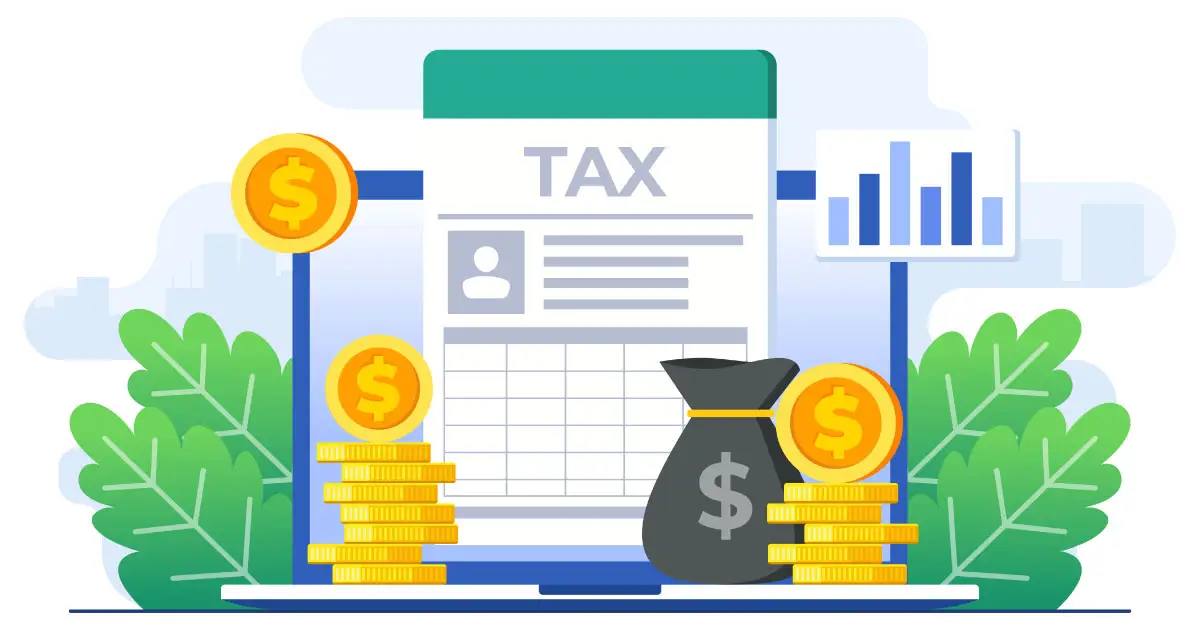
In Australia, if you lose money on one investment but make money on another, you can use the loss to lower your tax. For example, if you lost $1,500 on some shares but made $3,000 from another investment, you only have to pay tax on the difference, which is $1,500.
If your losses are bigger than your gains in one year, you can’t use the extra losses to lower your normal income (like your pay from work). But you don’t lose those extra losses — you can save them and use them in future years to lower any new capital gains.
Helpful Tips:
- Keep records: Write down when you bought and sold the investment, how much you paid, and any other costs.
- Know what counts: Only things like shares, property (not your home), or business assets can have capital losses. Personal things like your house, car, or furniture don’t count.
- Ask for help: A tax agent or accountant can help you report your capital losses properly and make sure you get the best result on your taxes.
Capital losses won’t lower the tax you pay on your wages, but they can help if you’ve made money from investments. It’s a small way to reduce your tax and take off some of the financial stress.
Settling Your Debt for Less: Is It Possible?
In Australia, if your debt is forgiven or cancelled, the amount you don’t have to pay back usually isn’t counted as income for tax. This is different from some other countries where cancelled debt can be taxed.
However, there are a few things to keep in mind:
- If the cancelled debt is from a business, it might change how your business income or tax deductions work — so it could affect your tax.
- If the forgiven debt is from a special kind of loan or deal, it’s a good idea to talk to a tax professional to understand what it means for you.
- Also, if you sold your home for less than the loan amount (called a short sale) or made a deal with your bank to reduce your mortgage, different tax rules might apply — especially if you’re claiming a capital gain or loss.
It’s important to keep good records of any agreements or paperwork from your lender about debt forgiveness.
Making Use of Capital Losses and Other Deductions
If you’ve had to sell an investment like shares and made a loss, there’s a silver lining — you might be able to use that loss to reduce your tax.
Here’s how it works:
- If you sell an asset (like shares or crypto) for less than what you paid, that’s called a capital loss.
- You can use that loss to offset any capital gains you made from selling other investments in the same financial year.
- If your capital loss is bigger than your gains, you can carry the leftover amount forward to future years. There’s no time limit — you can keep using it until it’s all used up.
But you can’t claim a capital loss on personal things like your home or car unless you used them to earn money, like in a business.
This can be helpful if you’re going through financial hardship and need to sell off some investments. Even though it’s tough, at least the tax system gives you a break by letting you use the loss to reduce your tax bill now or in the future.
Watch Out for Cancellation of Debt
If you’re going through financial hardship and a lender agrees to wipe or reduce your debt, it can feel like a weight off your shoulders. But a common question is: do you have to pay tax on the cancelled debt in Australia?
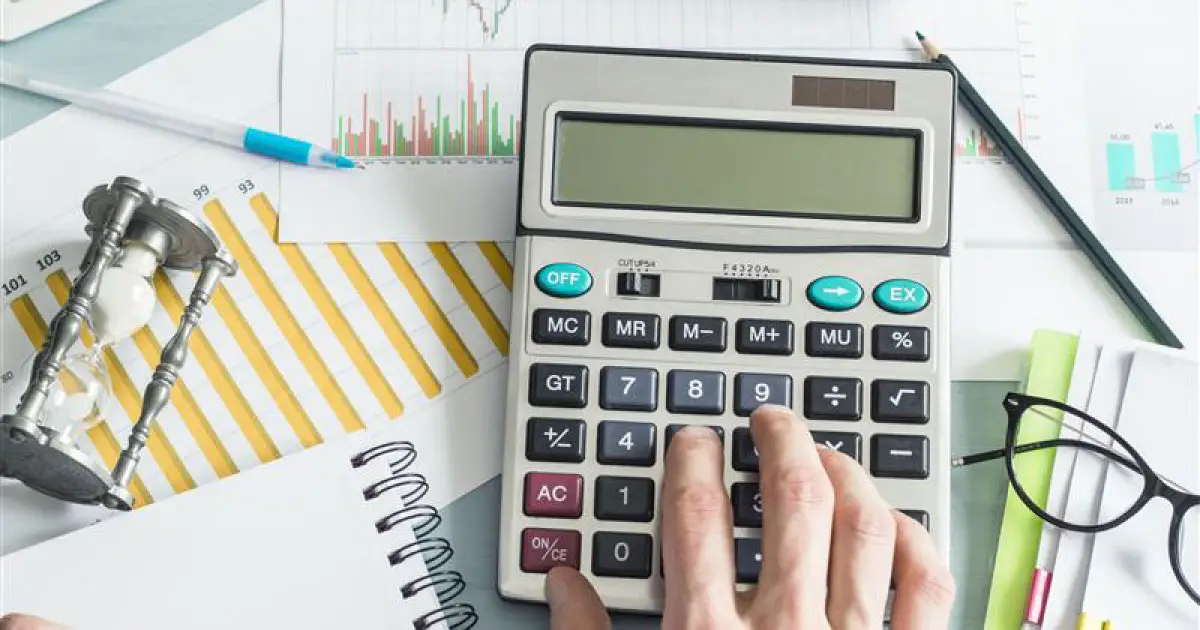
Debt may be forgiven in situations like:
- The bank takes your home back
- You give back something you were paying for, like a car
- The bank cancels part of the money you owe
- You stop paying a loan because you can’t afford it
- You sell a property for less than what you owe (this is called a “short sale”)
In Australia, if your personal debt, like a loan, credit card, or car loan, is cancelled, you usually don’t have to pay tax on that money. So, if your bank wipes your debt because you’re having money problems, you probably won’t need to pay tax on it.
What If It’s a Business or Investment Loan?
Things change a bit if the debt is tied to:
- A business you have
- A property you rent out
- Something you used for work and claimed on your taxes, like a loan
In these cases, the ATO might treat the forgiven debt differently. It’s best to speak to a tax agent or accountant who understands the rules in more detail.
If you owe more money than what you own, or if you have gone through bankruptcy, you usually don’t have to pay tax on cancelled debt.
This helps a lot when people are having money troubles and have to make hard choices to get by. The system is made to support people, not to make things harder for them.
Accessing Retirement Funds in a Crisis
No one wants to take money out of their super early because it’s there to help you when you retire. But if you’re having money problems, using your super early might feel like the only choice.
If you’re having trouble paying bills, medical costs, or rent, there are some special cases where you can get your super money early and legally.
When Can You Access Super Early in Australia?
The Australian Taxation Office (ATO) and your super fund can let you get your super money early, but only in certain cases, like:
1. Severe Financial Hardship
You may be eligible if:
- You have been getting Centrelink payments for at least 26 weeks in a row, and
- You still can’t pay for basic things like food, rent, and bills.
In this case, you can apply directly through your super fund. If approved, you can generally withdraw between $1,000 and $10,000, once in a 12-month period.
2. Compassionate Grounds
Through the ATO, you may be able to access your super early for specific reasons like:
- Going to the doctor or hospital in an emergency
- Keeping your home so you don’t lose it
- Paying for a funeral or caring for someone very sick
- Changing your home or car if you need help using them
Each case requires evidence and documentation, and approval isn’t guaranteed.
3. Permanent Incapacity
If you have a serious illness or injury and can’t work anymore, you might be able to get your super money early. You can take it all at once or in smaller payments.
4. Terminal Illness
If doctors say you have a serious illness and less than 2 years to live, you can get your super money early without paying tax.
Is There a Tax Penalty?
In Australia, there is no fixed 10% fee for taking super out early. But you might still have to pay tax, especially if you’re under 60 years old.
Here’s a general guide:
- If you’re under 60, you might pay tax when you take money out of your super. The tax is usually between 17% and 22%, depending on your situation.
- If you’re 60 or older, most super money you take out won’t be taxed.
Before you take money from your super, it’s important to talk to your super fund and learn how tax might affect you.
What If You’re Struggling Financially?
If you’re experiencing financial hardship, accessing your super can feel like a lifeline. But it should be a last resort, as taking out money now means you’ll have less later in life.
There may be other options worth exploring first, like:
- Talk to a financial counsellor — you can get free help from the National Debt Helpline.
- Ask your utility companies or bank if they can help with payment plans.
- Apply for government support programs that might help you.
HELP Debt Obligations During Financial Hardship
If you’re having money problems, paying back your HELP debt (used to be called HECS) might not be your main worry. The good news is you only have to start paying back HELP once you earn over a certain amount.
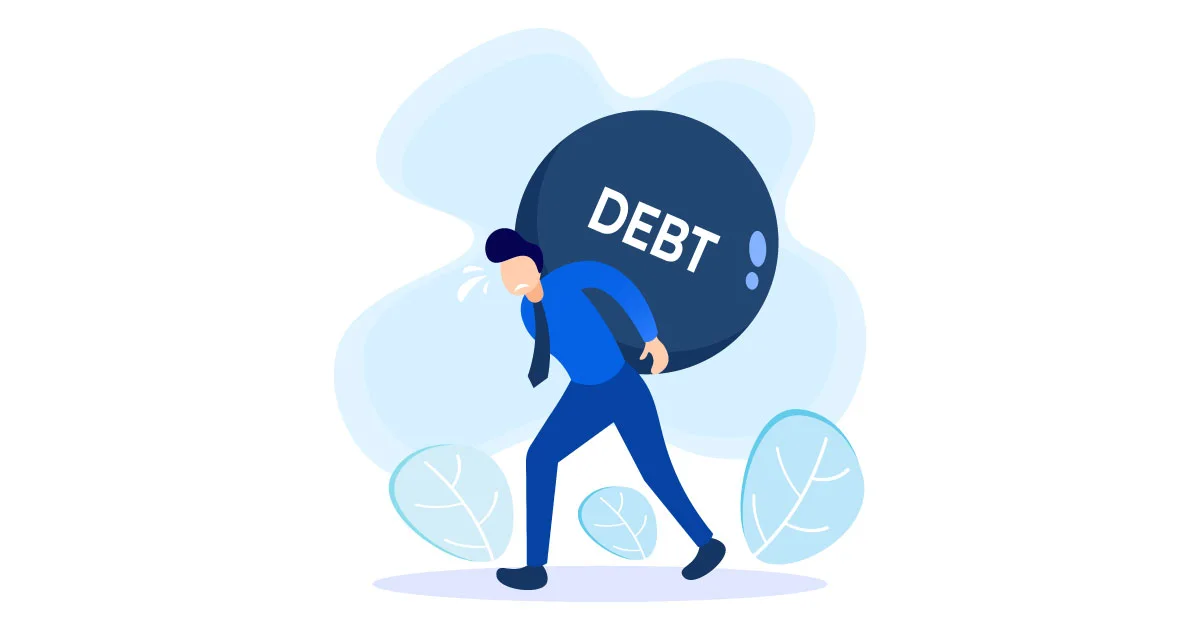
For the 2024–25 financial year, you’ll only start making repayments if your taxable income is over $51,550. If you’ve lost work, taken on fewer hours, or your income has dropped due to financial hardship, you likely won’t have to make repayments that year.
However, keep in mind:
- Your HELP debt gets a little bigger each year because of something called indexation.
- You can’t stop this from happening, even if you’re having money troubles.
So while you won’t be forced to repay if you’re earning below the threshold, your balance may still grow slowly in the background.
What Happens to HELP Debt in Bankruptcy?
If you go bankrupt in Australia, most debts like credit cards and personal loans are wiped out after three years. But your HELP debt is not cleared and you still have to pay it.
This means:
- If you’re bankrupt and don’t earn much money, you don’t have to pay your HELP debt.
- But if you start earning more than the limit, you still have to make payments through your taxes.
This means your HELP debt doesn’t go away, but when you have to pay it depends on how much money you earn before, during, and after bankruptcy.
Stay Proactive: Tips for Managing Tax in Hard Times
Here are a few tips to stay on top of your tax obligations when you’re doing it tough:
- Lodge your returns on time, even if you can’t pay right away — avoiding late lodgement penalties helps in the long run.
- Set up a payment plan with the ATO if you owe money. They’re generally understanding, especially if you’re transparent about your situation.
- Talk to a tax agent or financial counsellor if you’re unsure what to do — there’s help out there.
- If you’re eligible for government support (e.g. Centrelink), make sure you’re receiving the right payments.
Final Thoughts
Money troubles can feel really hard, especially when you have to pay tax bills or repay HELP debt. But remember, you’re not alone — and there are ways to make it easier. In Australia, you only have to pay HELP money back if you earn enough. If your income goes down, your payments will stop for a while. The tax office (ATO) also offers plans to help you pay tax debts and might reduce extra fees if you tell them about your problems early. Talking to the ATO, a tax expert, or a free money helper can really help. Taking small steps now can keep you in control and stop things from getting worse. Even when money is tight, help is available, and what you do today can make your money situation better tomorrow.
If you need help or advice with your money during tough times, contact SMG Accounting. We’re here to support you every step of the way.

